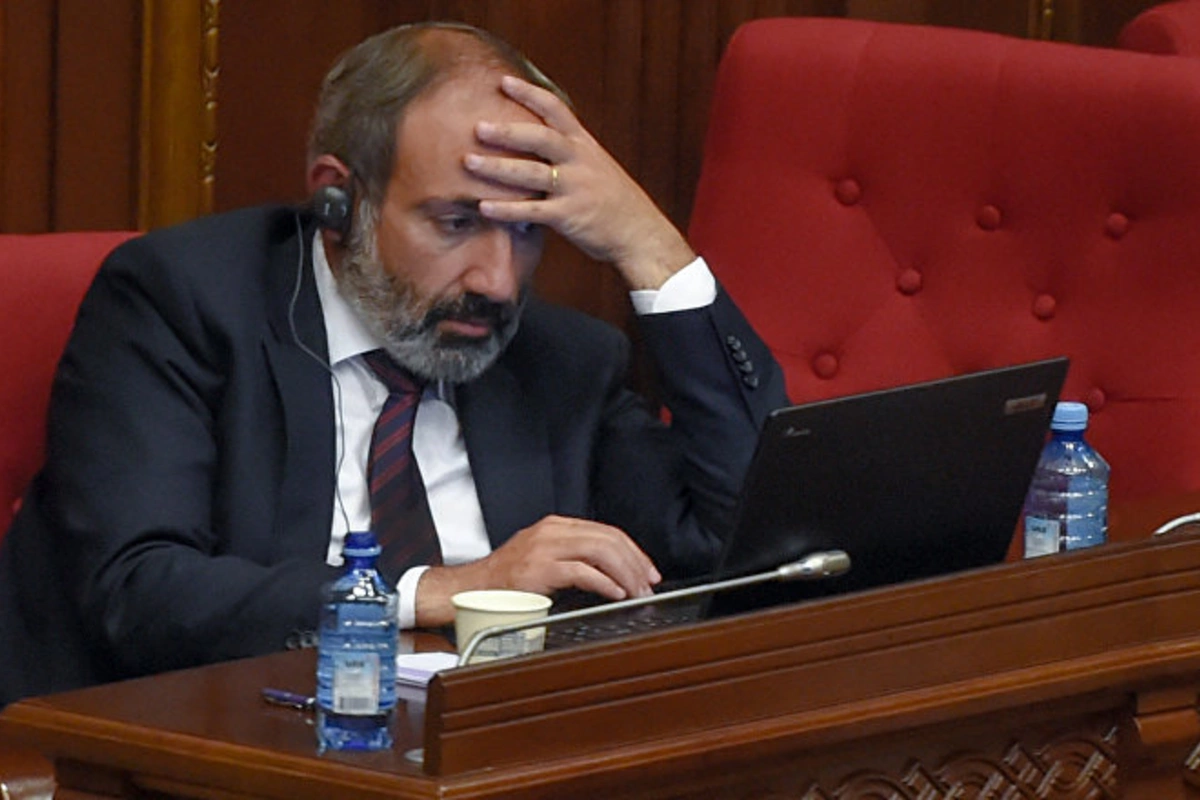
Photo: top-center.org
By Tural Heybatov
Prime Minister of Armenia Nikol Pashinyan has decided to respond to statements made by the President of Azerbaijan in his interviews with local television channels. Pashinyan could not remain silent, although that would have been much more prudent, given his inability to oppose Ilham Aliyev. This has been demonstrated repeatedly. After such attempts, including in the Armenian blogosphere, people exclaim, “He should have just kept silent.”
Recently, the Prime Minister of Armenia has found a certain way of replying regarding the topic of Azerbaijani return to Armenia. Back in December, following President Aliyev’s interview with Kiselyov, Pashinyan publicly presented his view of what constitutes Western Azerbaijan. Demonstrating some knowledge of geography, he listed several districts located in the western part of Azerbaijan itself. He preferred to pretend he did not understand what was actually being discussed. The only thing worth noting is that Pashinyan tried to explain to Armenians what so-called “Zapashnaya Armenia” is-specific regions of the Republic of Armenia rather than Turkey. However, that is the only positive aspect. One cannot draw parallels between the mythical “Western Armenia,” which is a derivative of territorial claims against Turkey, and the historical Western Azerbaijan, mentioned in Baku solely in the context of refugees returning there. Pashinyan does this deliberately, and not so much for the domestic audience as for external players.
These geographical excursions are intended to shift the focus and diminish the question of Azerbaijani refugees returning to their ancestors’ lands in Armenia, while highlighting a fabricated issue of alleged territorial claims by Azerbaijan against the Republic of Armenia.
Pashinyan also offers an “original” interpretation of Baku’s demands regarding Armenia’s demilitarization. According to the Armenian prime minister, these demands are designed to “facilitate unhindered aggression against the Republic of Armenia.” Such arguments can only evoke ridicule. Even if Armenia had modern weaponry, it would not be able to resist. The 44-day war demonstrated the Armenian army’s incapacity for combat, despite the large amount of weaponry acquired free of charge. Azerbaijan demands an end to rearming Armenia because that country has always been, and remains, a source of destabilization and aggression. States like Armenia should not have armed forces, since, given the ideological foundations on which the Armenian state is built, Armenian society will not be capable of living in peace with its neighbors.
Overall, Pashinyan’s proposals for establishing peace are a true “masterpiece,” revealing the Armenian leader’s weak understanding of geopolitical processes and Yerevan’s heavy reliance on external patrons. Pashinyan proposes continuing delimitation as though it were some sort of breakthrough. Even more laughable is his suggestion to dissolve the Minsk Group, presented as his own initiative. Among the “clear and straightforward” proposals he published on Facebook, there is much nonsense.
For example, he proposes signing an uncoordinated peace treaty, linking the question of the Zangezur Corridor to the irrelevant “Crossroads of Peace,” and instituting a joint mechanism for investigating ceasefire violations as well as for arms control. All these “brilliant” ideas have already been dismissed by the Azerbaijani side because they are frivolous and serve only to steer the peace process into a dead end.
A telling example is how Yerevan tries to blackmail Azerbaijan with lawsuits in international courts, constantly hinting that it is prepared to withdraw these suits if Baku does this or that. Apparently, Pashinyan is confident that Armenian lawsuits will be upheld through patronage and various other reasons. Fairness and legitimacy are not among these reasons.
Among Pashinyan’s peace conditions is also the “complete resolution of the issue of detainees,” which implies releasing terrorists, saboteurs, separatists, and war criminals. Needless to say, this condition will not be fulfilled.
Commenting on the prime minister’s proposals, spokesperson for the Azerbaijani Foreign Ministry Aykhan Hajizade said:
“It is interesting that your ‘peace-loving narrative’ bypasses the most essential pillar for establishing lasting peace and stability in the region-namely, respect for the territorial integrity and sovereignty of states. If Armenia is truly interested in building peace with its neighbors, why are you so reluctant and unwilling to begin the process of renouncing claims to the territories you all call ‘Western Armenia’ and the ‘Nagorno-Karabakh Republic,’ as entrenched in your Constitution and national legislation?
Sorry, but your arguments cannot be seen as confirming Armenia’s ‘good intentions.’”
After reading Pashinyan’s post, there is no longer any doubt about Armenia’s intentions: they are aimed at further torpedoing the peace process. Attempts to push Baku into signing a non-consensual agreement have not succeeded, and none of Armenia’s sponsors wants a genuine peace treaty concluded. Peace in the region will come when Yerevan learns to think independently, as is expected of the leadership of a sovereign state.
Share on social media